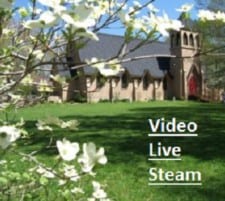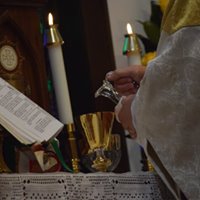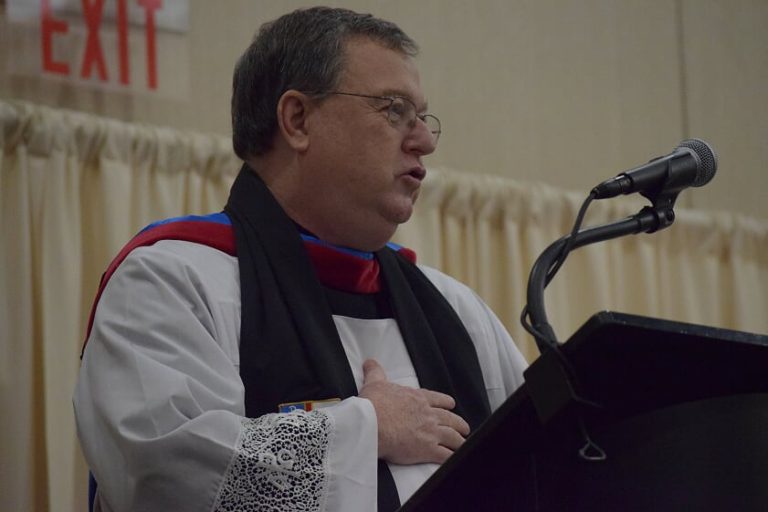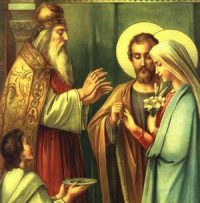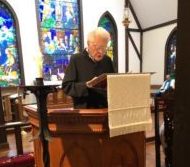The Gesima Season
What is a Gesima?
“A change is a coming” as we have celebrated Jesus’s birth. Jesus experienced the shedding of His blood at His circumcision (as he was given the name Jesus as commanded by the Angel Gabriel, thus subjecting him to the Law, while his blood that would be spilt on the Cross redeemed us from “under the Law.” The Gentiles who found Him now had to follow a different way, as is for all of us who find him thus having to follow a different way afterwards. After his baptism, Jesus then spent forty days in the desert, wherein he was tempted by Satan (as we all are – although His temptations were greater than any we will ever experience.)
So the Church now provides us a transitional time into the Lenten Season as we focus upon the serious and deadly serious for His birth as He came for us. This transition time has taken various forms in various places and times but always within the same general pattern of Jesus’ earthly life to the end of it.
The Western and the Eastern Churches calculate Easter, and thus the forty days before it, differently, but the overall pattern is the same, as is a transitional period between the Christmas season and now the preparation for Easter. In the Eastern Church this transitional period is framed by five Sundays, after the last of which Great Lent begins on Clean Monday; in the Western Church it is for three Sundays, after the last of which Lent begins on Ash Wednesday. Either way, East and West have observed this period at lease since the sixth century (at least since A.D. 568).
“This period of the Church Year is our ‘narthex,’ our entrance, into the season of Lent, a time for us to pause before we begin our pilgrimage to Calvary and the empty tomb…* .
Septuagesima is simply another word for seventieth.
Gesima period involves the Septuagesima (70 Days), Sexagesima (60) Days, and Quinqagesima (50) Days.
The 70th, 60th, and 50th day of (or from what)? Easter! Except it’s not exactly seventy days (as the date for Easter determines the exact dates.
With the Seventieth Day, or Septuagesima, the change becomes apparent on various levels. The white vestments of Christmastime joy have given way to the green during this time of Epiphany (showing forth) of Jesus and now the green gives way to purple or violet of repentance. And the festal features change as the Gloria in excelsis and Alleluia are omitted on these days (however; since this is not a full penitential season, flowers remain on the altar.)
On Septuagesima Sunday itself, the Gospel reading is Matthew 20:1-16, the story of the workers in the vineyard, wherein we see Man the same as ever from the start in Eden, trying to impose his ideas of what is right on to God’s, this time arguing over whether the same wage is fair for those who worked all day, those hired at the last, and everyone in between, as if we deserved anything from God and it were not his to give and not ours to presume or demand anyway. So we argue with God and each other over “money” rather than taking it in gratitude from him who owed us nothing.
The secular world’s early Spring celebrations in many lands have often been timed on Lent; however, this worldly pre-Lent celebration seeks a nature opposite quite opposite from its Christian meaning. In some places Septuagesima is also the start of Carnival season, which ends on the Tuesday just before Lent starts on Ash Wednesday, often known by its French name, Mardi Gras, or Fat Tuesday. So, as the church prepares for the penitential season of Lent the world enjoys the flesh, in all senses of the word.
The Roman Catholic Church, along with others, have unfortunately transitioned out of pre-Lenten period and they have abolished it altogether. The period of time it formerly took is now simply counted as simply an Ordinary Time (what a shame.) In the Vatican II novus ordo this significant time of transition from the Christmas cycle to the Easter cycle simply ceases to exist in the face of millennia’s of Christian observance within its varying forms.
Come join us at St. Michael the Archangel as we move into this Gesima Season, reclaiming the practice of true worship within the One, Holy, Catholic, and Apostolic Church. Come all ye that travail and are heavy laden, and He will refresh you!
- Nils Jakob Laache describes this season in his Book of Family Prayer.


